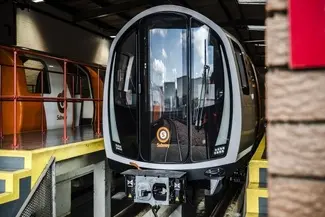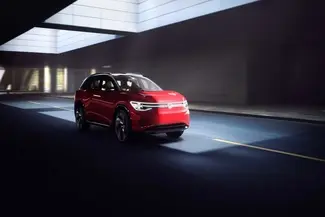Boeing to take 80% in Embraer commercial in JV
Following months of negotiations, Boeing and Embraer have signed an MOU to set up a joint venture (JV) comprising Embraer’s commercial aircraft and services business.

Following months of negotiations, Boeing and Embraer have signed an MOU to set up a joint venture (JV) comprising Embraer’s commercial aircraft and services business.
Following months of negotiations, Boeing and Embraer have signed an MOU to set up a joint venture (JV) comprising Embraer’s commercial aircraft and services business.
The non-binding agreement, announced July 5, sees Boeing take an 80% stake Embraer’s commercial operations, while Embraer will control the remaining 20%. Management of the new company will be based in Brazil and will be led by a president and CEO who will report to Boeing CEO Dennis Muilenburg.
Boeing will “have operational and management control of the new company,” it said.
The companies expect the transaction to close by the end of 2019 following all shareholder and regulatory approvals, including gaining support by the Brazilian government.
"This important partnership clearly aligns with Boeing's long-term strategy of investing in organic growth and returning value to shareholders, complemented by strategic arrangements that enhance and accelerate our growth plans,” Muilenburg said.
"The agreement with Boeing will create the most important strategic partnership in the aerospace industry, strengthening both companies' leadership in the global market," Embraer CEO and president Paulo Cesar de Souza e Silva said. "The business combination with Boeing is expected to create a virtuous cycle for the Brazilian aerospace industry, increasing its sales potential, production, creating jobs and income, investments and exports, and in doing so, adding more value to customers, shareholders and employees."
The move would mark a transformational step for the aerospace industry and reduce the number of western large commercial jet manufacturers from four to two. On July 1, Airbus took majority control of the Bombardier CSeries program in the C Series Aircraft Limited Partnership (CSALP).
The consolidation process is also visible in the supply chain where large blocks controlling big parts of the aircraft such as United Technologies have strengthened.
Embraer and Boeing acknowledged publicly late in 2017 that they were in discussions. The confirmation came only weeks after Airbus had agreed to buy the CSeries, leading many observers to believe that Embraer saw itself forced to react. However, executives at Boeing and Embraer both stress that they have been in on-and-off talks before and have been engaged in joint projects.
Nonetheless, the Airbus takeover of the CSeries has made that program a stronger competitor vis-à-vis the Embraer E-Jets E2 and has, according to industry sources, created a greater sense of urgency. Boeing also has no direct CSeries competitor to offer in its own portfolio, a disadvantage in campaigns where airlines want aircraft of different sizes.
For Boeing, the Embraer tie-up is of great strategic value because it gives the company access to the company’s highly-respected engineering workforce. Embraer is also keen on becoming a part of the proposed new mid-market airplane (NMA) that Boeing wants to bring to market by around 2025. Participating in Boeing commercial aircraft programs plus possibly being handed over (partial) responsibility for the design and manufacturing of a small narrowbody replacing the Boeing 737 at the lower end of the market gives Embraer growth perspectives the company has not had on its own.
Before having launched the E2, which entered service earlier this year, Embraer had studied to build a larger aircraft that would have competed with the 737 and the A320.
Boeing pointed out that the joint venture will be “one of Boeing’s centers of excellence for end-to-end design, manufacturing and support of commercial passenger aircraft.
The proposed transaction values Embraer’s commercial aircraft business at $4.75 billion, Boeing therefore pays $3.8 billion for the 80% stake. Boeing said it expects synergies of $150 million annually by year three. Financial and operational details and a definitive agreement still need to be worked out “in the coming months.”
Separately, the two companies announced they will also cooperate in developing new markets and applications for defense products, most notably, the KC-390 military transport aircraft. For these activities, another JV will be set up.















![AIRBUS A380 [MORE THAN 600 PASSENGER’S CAPACITY PLANE]](https://cdn.tinn.ir/thumbnail/4jCp4EQvCU0b/IjHVrSYQrIAqIzXuTzADR7qLYX4idQT4nfq__26E5SCUPLMqfhWkWajvuO9Wfq1ql1TjV4dhkrHliNQU82kMpo2NNftT_NGEwHc9KXtN_rk731bmifa2IQ,,/airbus-a380-structure1.jpg)

Send Comment